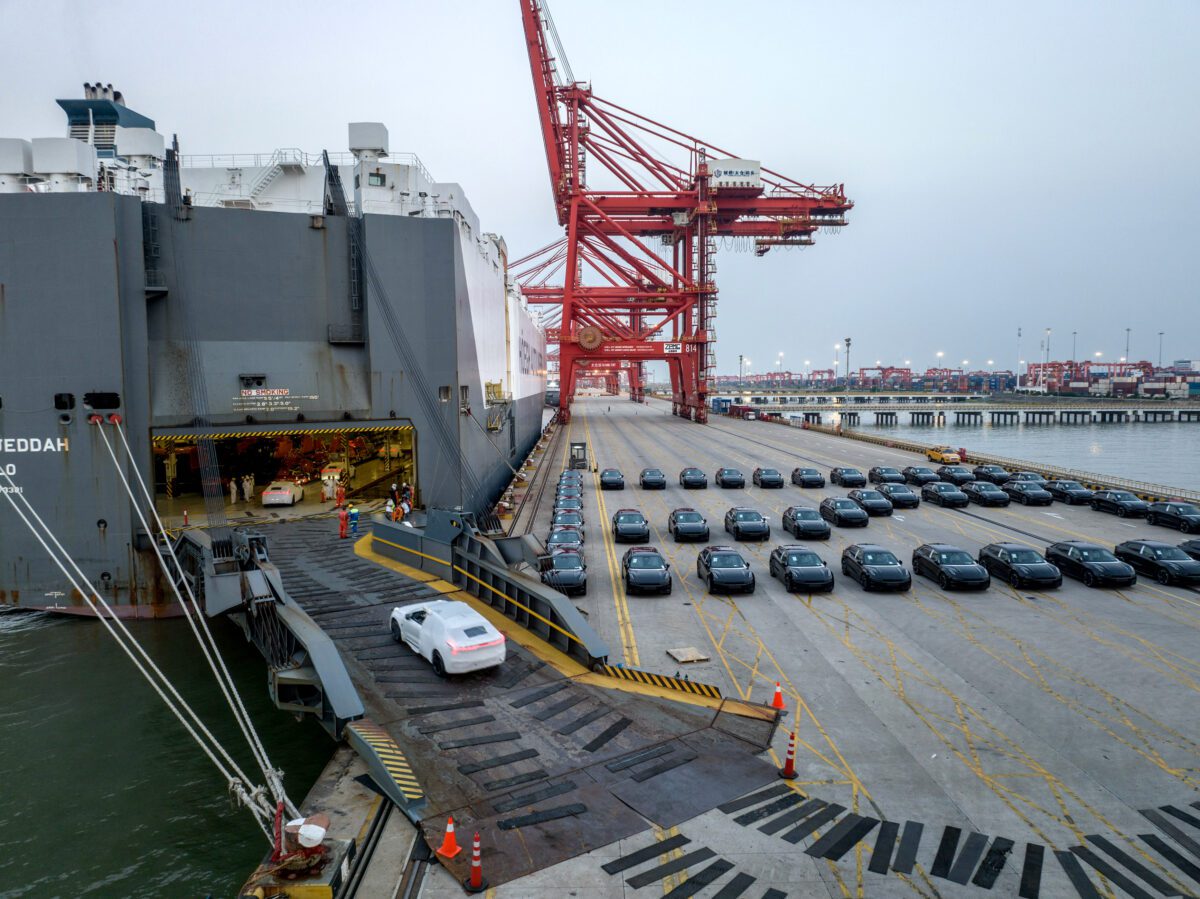FMW-Redaktion
Der indische Industriekonzern Tata hat verkündet sich von allen britischen Stahlwerken trennen zu wollen. Von Verkaufen ist die Rede. Zwei Standorte mit 5.000 Mitarbeitern werden gerade schon an Finanzinvestoren verkauft – andere könnten geschlossen werden. Der Verlust an Arbeitsplätzen könnte zwischen 0 und 15.000 liegen, vermultich aber irgendwo in der Mitte. Tata sagte dazu heute in Neu Delhi das Geschäft in UK habe in den letzten fünf Jahren 2 Milliarden Pfund Verlust erwirtschaftet.
Am besten aufzeigen tut das strukturelle Problem das Werk Port Talbot in Wales, wo im größten Stahlwerk Großbritanniens 4.000 Stahlarbeiter beschäftigt sind. Das Werk produziert für Tata pro Tag 1 Million Pfund Verlust. Daher will die Firma das Problem auch „zügig“ lösen. Billige Importe aus China, hohe Kosten und eine schwache Nachfrage würden Tata das Geschäft in UK schwer machen. Verständlich, denn die Chinesen haben selbst Überproduktion bei Stahl, und versuchen neben eigenen Entlassungen ihren Stahl irgendwie irgendwo loszuwerden. Dann werden sich die Inder von Tata sagen „wozu brauchen wir die Verlustbringer in UK noch?“
Die britische Industrieministerin Anna Soubry sagte heute der BBC man „erwäge alle Optionen“ zur Rettung der Standorte. Tata solle sich Zeit nehmen bei den Verkaufsaktivitäten. Direkte Hilfen der Regierung für den Fall von gescheiterten Verkaufsverhandlungen seien nicht ausgeschlossen – damit dürfe man aber nicht gegen EU-Regeln zu verbotenen Subventionen verstoßen. Auf deutsch gesagt: Findet Tata keinen Käufer und will die Stahlhütten dicht machen, springt London ein – zumindest besteht die Möglichkeit hierzu.
London hat jetzt zwei Möglichkeiten: Findet Tata z.B. für seinen Verlustbringer in Wales keinen Abnehmer, wovon mit großer Wahrscheinlichkeit auszugehen ist, kann die Regierung gemäß den Regeln der freien Marktwirtschaft den nicht Überlebensfähigen sterben lassen, oder im Sinne der Mitarbeiter einspringen und den Laden als subventionierten Staatsbetrieb fortführen. Dann müsste der britische Steuerzahler dauerhaft massiv Geld zuschießen um künstlich unrentable Arbeitsplätze zu erhalten. Das würde so gar nicht in das marktwirtschaftliche Großbritannien passen, das man kennt. Der Bürgermeister der walisischen Stadt Aberavon, die durch die Schließung von Port Talbot wohl dem Untergang geweiht wäre, sagte der „South Wales Evening Post“ hierzu:
„We will not allow the closure of Port Talbot steelworks. One way or another we will continue to make steel in Port Talbot but it looks like Tata do not back the plan. We will work with Tata and the UK government to help find a buyer for the plant.“
Hat da jemand bereits mit David Cameron telefoniert? Auch wenn Cameron wie seine Vorgänger einen strikt marktwirtschaftlichen Kurs fährt: Das Glück zumindest für die Stahlarbeiter könnte darin liegen, dass man im Sinne der britischen Staatsraison nicht auch noch die letzten Reste der britischen Industrieproduktion verlieren will.
Hier die heutige offizielle Verlautbarung von Tata Steel:
The Tata Steel Board today reviewed the recent performance of the European business of the Company, more specifically, of Tata Steel UK.
It noted with deep concern the deteriorating financial performance of the UK subsidiary in the last twelve months. While the global steel demand, especially in developed markets like Europe has remained muted following the financial crisis of 2008, trading conditions in the UK and Europe have rapidly deteriorated more recently, due to structural factors including global oversupply of steel, significant increase in third country exports into Europe, high manufacturing costs, continued weakness in domestic market demand in steel and a volatile currency. These factors are likely to continue into the future and have significantly impacted the long term competitive position of the UK operations in spite of several initiatives undertaken by the management and the workers of the business in recent years. Even under these adverse market conditions, the Tata Steel Group has extended substantial financial support to the UK business and suffered asset impairment of more than £ 2 billion in the last 5 years.
The Tata Steel Board also reviewed the proposed restructuring and transformation plan for Strip Products UK, prepared by the European subsidiary in consultation with an independent and internationally reputed consultancy firm. Based on the review conducted, the Tata Steel Board came to a unanimous conclusion that the Plan is unaffordable, requires material funding support in the next two years in addition to significant capital commitments over the long term, the assumptions behind it are inherently very risky, and its likelihood of delivery is highly uncertain. Therefore, the Board concluded that it would not be able to support the investment necessary to proceed with the proposed Strip Products UK Transformation plan.
The Company has also been in deep engagement with the UK Government in recent months seeking its support to achieve the best possible outcome for the UK business, within the restrictions of State Aid Rules and other statutory limits. These discussions are ongoing and will continue. Discussions will also continue with Greybull in relation to a sale of the UK Long Products business. The UK Government is also involved in the latter discussions.
Following the strategic view taken by the Tata Steel Board regarding the UK business, it has advised the Board of its European holding company i.e. Tata Steel Europe, to explore all options for portfolio restructuring including the potential divestment of Tata Steel UK, in whole or in parts. Given the severity of the funding requirement in the foreseeable future, the Tata Steel Europe Board will be advised to evaluate and implement the most feasible option in a time bound manner.
Kommentare lesen und schreiben, hier klicken












